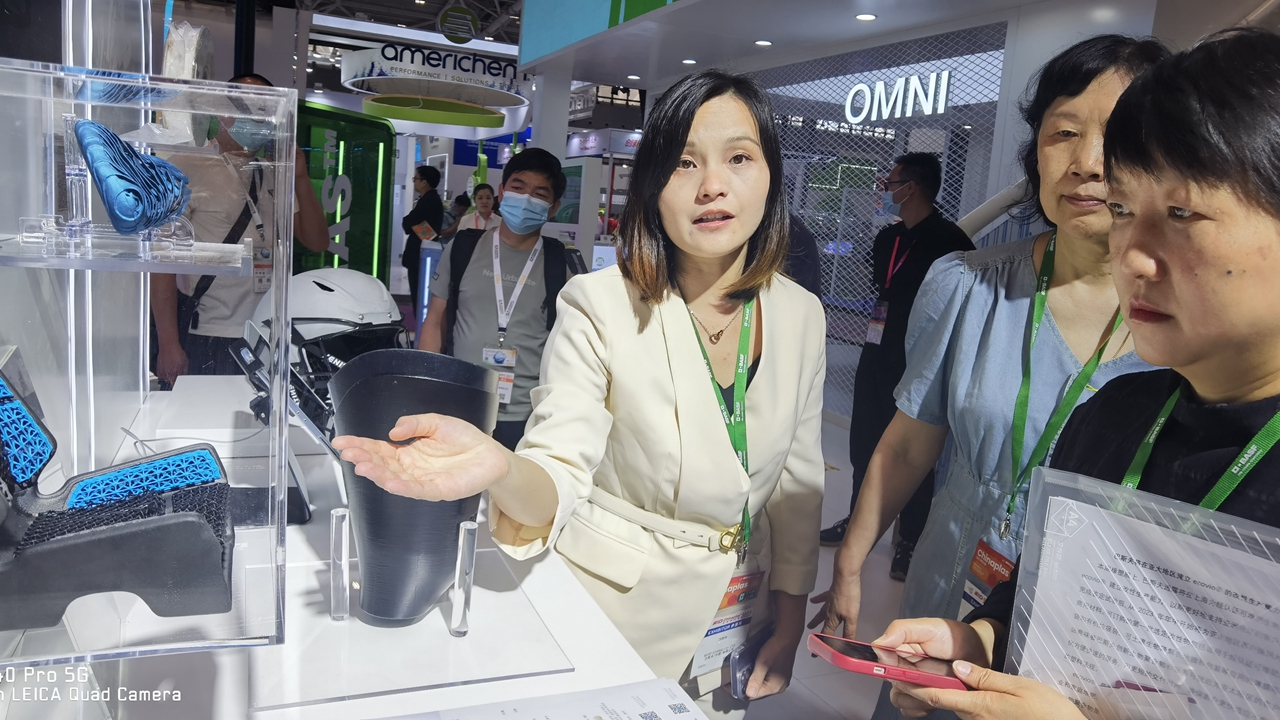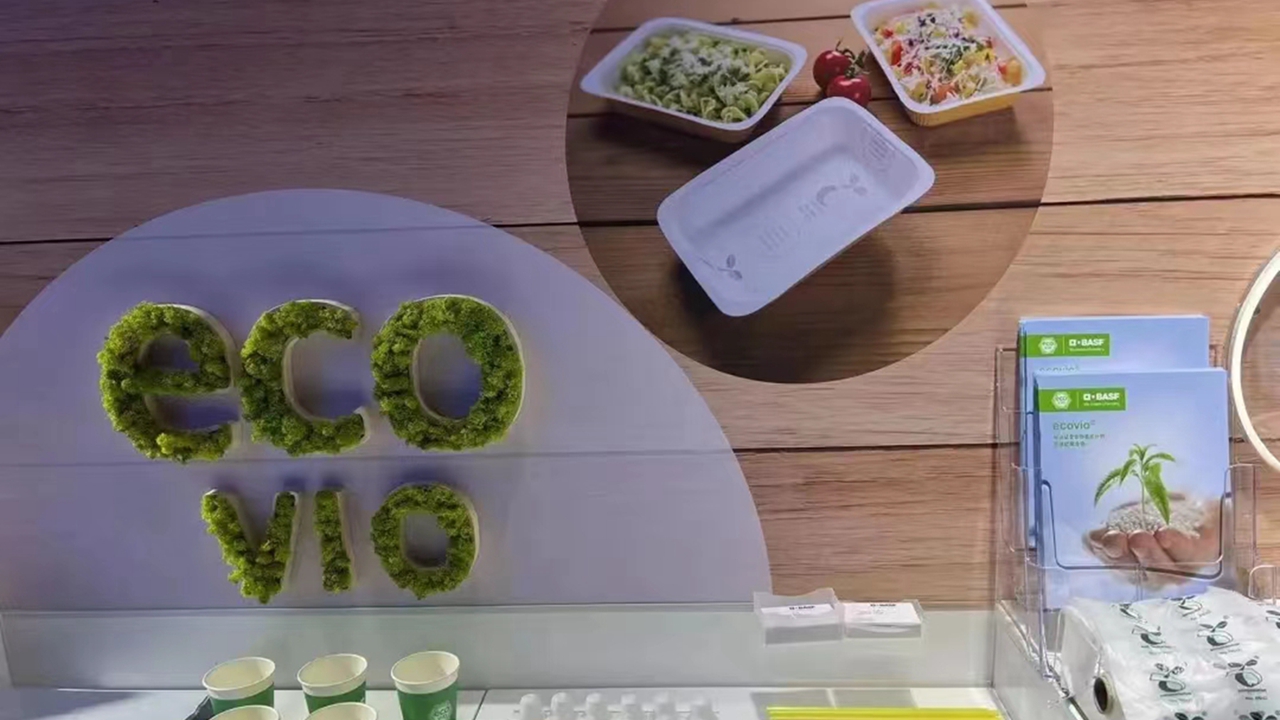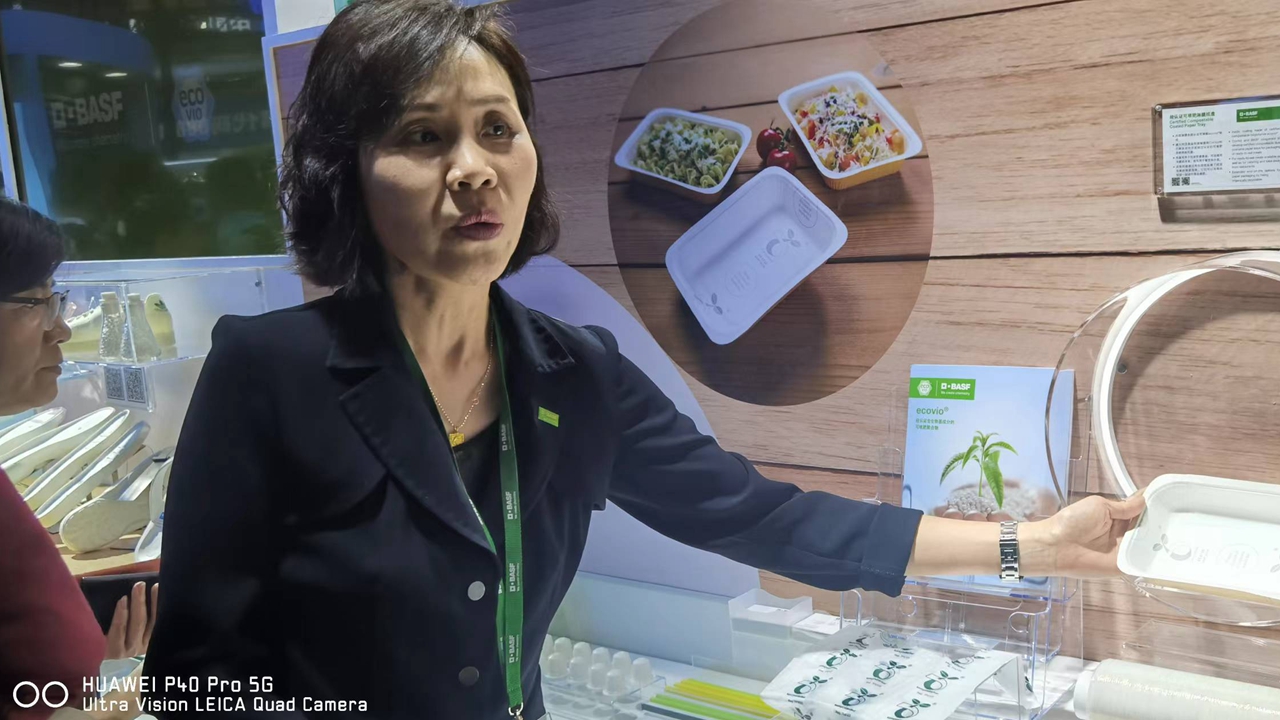BASF demonstrates ecofriendly development
BASF, a world-leading German chemical company, has demonstrated how it helps customers meet their sustainability goals and green journey with solution on how plastics are made, used and recycled at the Chinaplas 2023, which opened yesterday at the Shenzhen World Exhibition and Convention Center in Bao’an District.

A staffer (R) with BASF shows visitors an ultralight trainer made with the company's plastic materials at the Chinaplas 2023 at Shenzhen World Exhibition and Convention Center in Bao'an yesterday.
“As green transformation becomes the new growth engine for the Chinese economy, chemical innovation plays a vital role in enabling sustainability and a circular economy. We will collaborate with our customers and value-chain partners to build a green and low-carbon future,” said Jeffrey Lou, president and chairman of BASF Greater China.
“BASF generated sales of 87.3 billion euros (US$95.80 billion) in 2022. We kept our economic success while protecting the environment. By 2030, we will reduce our carbon dioxide emissions by 25% compared with the amount in 2018,” Lou said.

An employee with BASF (in white) introduces a 3D-printed child seat for vehicles made with plastic materials of the company at its booth at Chinaplas 2023 in Bao'an yesterday.
To achieve this goal, BASF will increase its use of green electricity, innovate techniques, optimize production process and recycle reusable materials.
At the Chinaplas 2023, which will run until April 20, BASF introduced certified Biomass Balanced (BMB) grade products that drive the use of renewable raw materials, save fossil fuel resources and support reducing greenhouse gas emissions.

A BASF employee shows a lightweight plastic helmet to visitors.
“The certified BMB grades are based on a mass balanced approach, which can be available based on customer demand. Together with our customers, we will develop tailor-made solutions optimized to achieve their specific sustainability goals,” said Andy Postlethwaite, senior vice president of performance materials of BASF Asia-Pacific.
“All performance materials plants in China already use renewable energy, translating to a 60% savings in CO2 emissions,” Postlethwaite said.

Biodegradable cups and other tablewares produced by BASF are shown at the Chinaplas 2023.

A staffer introduces a biodegradable plastic lunch box at the booth of BASF at Chinaplas 2023.
BASF’s portfolio is comprised of six segments: chemicals, materials, industrial solutions, surface technologies, nutrition and care, and agricultural solutions.
At the fair, the company demonstrated a wide range of products using its plastic materials from packaging, household utensils to industrial plastics products for new energy vehicle charging facilities.
BASF, which is expected to invest up to 10 billion euros in South China’s Zhanjiang by 2030, also announced that its thermoplastic polyurethane plant startup in Zhanjiang, the second plant of the BASF Zhanjiang Verbund site, is on track for the second half of 2023. Along with the plant producing engineering plastic compounds, BASF is well-positioned to meet the growing demand of its Asia-Pacific customers, particularly in the automotive, electronics and electric vehicles industries in tandem with trends such as the electrification of cars and miniaturization of electronic devices.